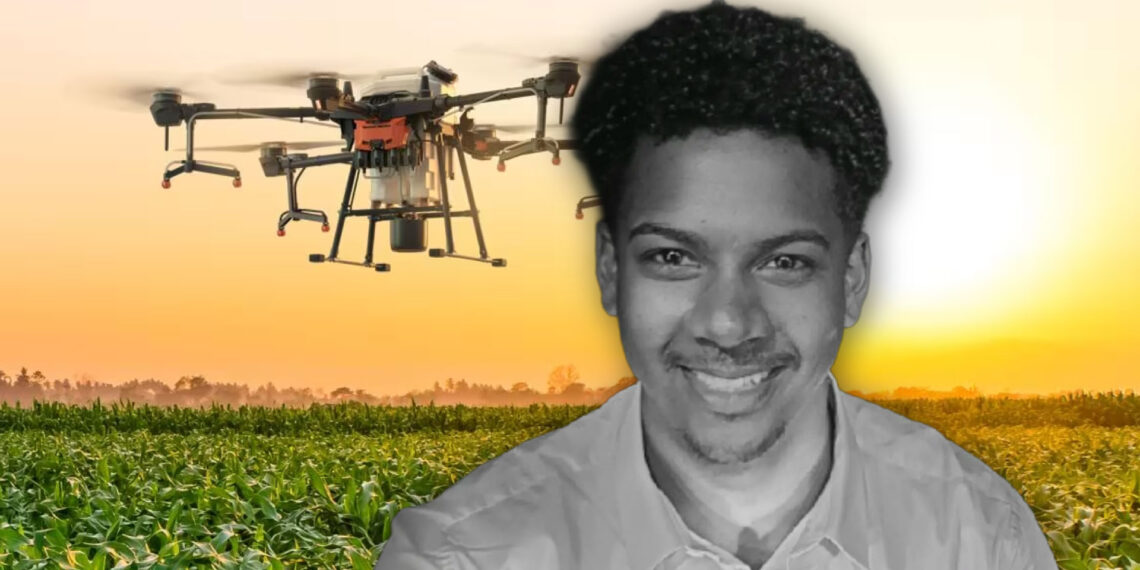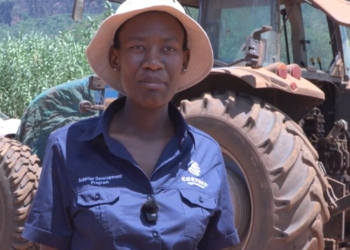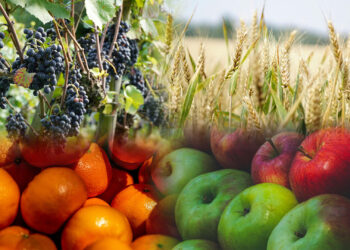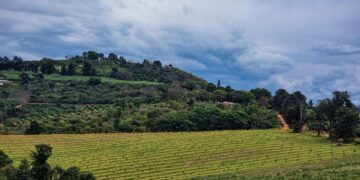Drones are revolutionising farming by enhancing efficiency, reducing costs, and increasing sustainability, according to a recent 2025 Market Intelligence Report by Green Cape and the Western Cape department of agriculture.
The report points out the rapid growth of drone technology in South African agriculture, noting that drones are approximately 75% more fuel-efficient than manned aircraft and significantly reduce chemical drift.
It further indicates that these advantages are crucial for protecting nearby waterways and sensitive environments, marking an important step toward more sustainable and precise farming practices in the region.
According to the report, the two main applications of drone technology in agriculture are imaging and precision spraying. In imaging, drones can be used for farm asset surveying, crop health analytics, and early pest and disease detection.
Farmers like Kyle-Jones Middleton from Jacobsdal in the Free State, who farms on the Orange-Riet Water Scheme, are leading the way by adopting drone spraying technology for commercial crop production.
Food For Mzansi caught up with Middleton to hear his firsthand experience with drone technology on his commercial farm since its introduction.
Lisakanya Venna: How do you use drones on your farm?
Kyle-Jones Middleton: We use drones to spray chemicals on our commercial crops, which include maize, barley, wheat, and lucerne. Whenever possible, we apply agrochemicals using drones, depending on the chemical’s registration for aerial application.
📢 Stand Up, Be Seen, Be Counted
We want to provide you with the most valuable, relevant information possible. Please take a few minutes to complete this short, confidential survey about your farming practices and challenges. Your feedback helps us tailor our coverage to better support the future of agriculture across Mzansi.
How has the implementation of drones impacted your farm operations?
The drones have been very helpful. They are extremely efficient, and the ease of use is excellent if you have the right equipment and know what you’re doing. We’ve managed to limit trampling in our crops once we’ve planted; we have no tractors in the fields.
We fertilise all our crops through pivots and use drones for spraying, so we don’t lose any rows to trampling when it comes to harvest time. With the high cost of inputs and electricity to grow crops, every bit of savings we can squeeze out really counts.
Related stories
- Farming smarter: Digging into GIS data
- Data-driven citrus farming keeps SA ahead of the curve
- Climate change resilience: Practical strategies for farmers
What would you say is your greatest achievement since you started using drones on your farm?
The greatest achievement since implementing drones has been being self-sufficient. We are able to execute our production plan much more precisely, as we are not waiting for contractors to pitch up. We can also control the exact time to spray, so we spray when conditions are ideal and can deliver a much better result.
Sometimes being a few days late while waiting for a contractor or being able to do the application on time can make or break your season. We’ve also been able to save significant contractor fees. We spray multiple applications, and it totals over 900 ha, so spraying all our crops in a year is an achievement on its own.
Have you encountered any challenges or disadvantages while using drones on your farm?
I have flown small drones since 2018, so I was familiar with the technology, and the transition was easy. It does not take a lot of time; however, spraying must be done under ideal conditions, often very early in the morning or late at night.
What is your perspective on the future of technology in farming?
Tech is the future of farming. Farmers need to be open to tech and learn as fast as possible when implementing new tech. We start our irrigation pivots via apps and have much more control over our water. We use electronic probes for water scheduling.
Technology is only going to get bigger, better and more efficient. We save millions of rands yearly with the use of tech. It frees us up to focus on important tasks and allows us to be much more accurate and precise.
READ NEXT: Bird flu vaccination stalls as red tape bites

















